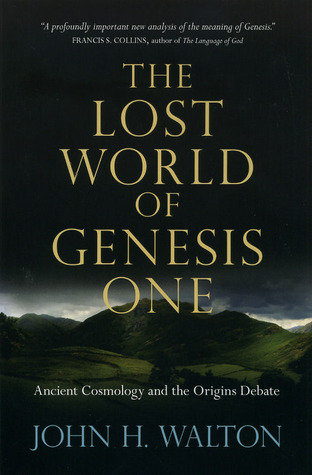More on this book
Community
Kindle Notes & Highlights
is the way that we acknowledge that God is on the throne, that this world is his world, that our time is his gift to us.
theory I find very attractive for the way it suits the wide variety of data is that wisdom entails finding inherent order and conforming oneself to that order. One understands authority, society, family, relationships, ethics and etiquette all in relationship to an understanding of order.
Through Genesis 1 we come to understand that God has given us a privileged role in the functioning of his cosmic temple. He has tailored the world to our needs, not to his (for he has no needs). It is his place, but it is designed for us and we are in relationship with him.
God indicated to Job, even though the world is God’s place and functions under his control, that does not mean that the cosmos is a reflection of God’s attributes (Job 38).
The cosmos declares God’s glory, and his existence can be deduced in the observation of the world, but those truths do not indicate that his attributes are consistently worked out in what we call the “natural world.” Gravity is not just; rain falls on the righteous and unrighteous alike , even where no one lives (Job 38:25-27); the created world is not “fair.” If it were going to be consistently fair and just, there would be no room for sin at all. Given that it is a sinful world, God’s condescending grace reigns.
what affirmations does the proposed interpretation of Genesis 1 expect of us? The world operates by Yahweh’s design and under his supervision to accomplish his purposes. The cosmos is his temple. Everything in the cosmos was given its role and function by God. Everything in the cosmos functions on behalf of people who are in his image.
Unfortunately, although they are quick to dismiss positions which blatantly promote teleological perspectives (creationism, Intelligent Design), there seems to be no attempt to dismiss positions that blatantly promote dysteleology, which is equally impossible to affirm through empirical science (as they indicate). One wonders how willing the NABT would be to rise up against a teacher who actively promotes dysteleology, and would they do so with the same passion that they demonstrate when opposing those who support creationism or ID?
Having granted the role of empiricism in the science classroom, our public educational systems are woefully inadequate if curricula totally ignore metaphysics.
The fact is that even though empirical science can be taught as such, scientists must function in an integrated world. A scientist could be at the top of his or her scientific discipline, but that would not mean the scientist was equipped to apply his or her scientific expertise to the various social issues that arise in our world.
If scientists are the ones making decisions for how their science will find its use in society, they must be as astute in thinking about the metaphysical aspects as they are in thinking about the scientific issues.
The position that I have proposed regarding Genesis 1 may be designated the cosmic temple inauguration view.
the scientific community by and large, including the National Academy of Sciences, has staked the prestige of science on a particular theory with considerable explanatory power but known problems, in part because it is consistent with a naturalistic philosophy. On the other hand, Creationists have for all intents and purposes staked the truth of their religion on the falsity of that same theory, because of the perceived need for a literal interpretation of the Bible. Clearly, neither the proponents of Creationism nor those of Neo-Darwinism can permit their side to lose or even give ground,
...more
ancient thought in numerous categories of science, see Denis Lamoureux, Evolutionary Creation (Eugene, Ore.: Wipf and Stock, 2008), pp. 105-47.
between the extremes of deism and micromanagement discussed in Terence E. Fretheim, God and World in the Old Testament: A Relational Theology of Creation (Nashville: Abingdon, 2005), pp. 7, 22-24.
E. W. Bullinger, Figures of Speech Used in the Bible (Grand Rapids: Baker, 1968), pp. 538-608.
the function of an archetype does not rule out their historical (or biological) reality. In Romans 5 Jesus stands as an archetype alongside Adam. Abraham is identified as an archetype of people of faith. These are historical figures who are being used in the literature for their archetypal significance.
the framework hypothesis as well as a fair analysis of the other positions, see Henri Blocher, In the Beginning (Downers Grove, Ill.: InterVarsity Press, 1984), pp. 39-59.
more inclined to merge the two (p. 246). 10The
10The distinction between evolution and evolutionism goes as least as far back as C. S. Lewis, “The Funeral of a Great Myth,” in Christian Reflections (Grand Rapids: Eerdmans, 1967), pp. 82-93 (see especially p. 83). Thus we might suggest that it is not creation and evolution that are at odds, but their ideological cousins, Creationism and Evolutionism.
the important article by Timothy Larsen, “‘War Is Over, If You Want It’: Beyond the Conflict Between Faith and Science,” Perspectives on Science and Christian Faith 60, no. 3 (2008): 147-55.


